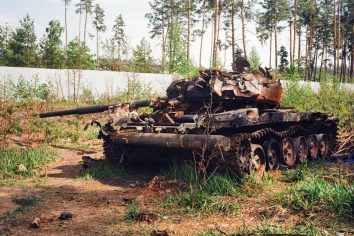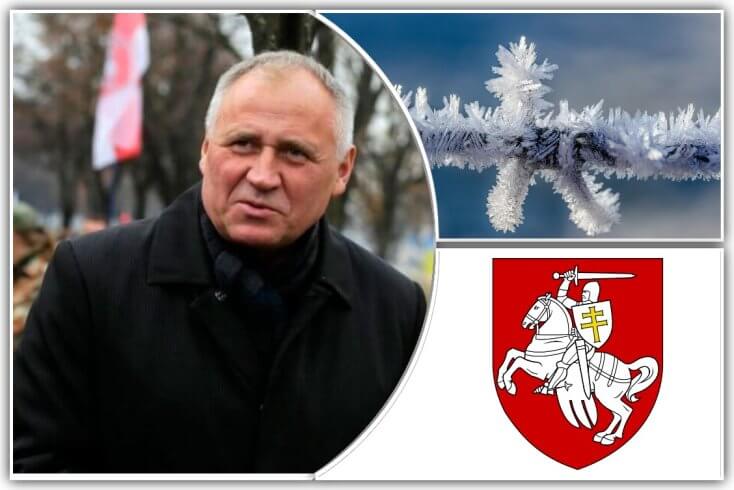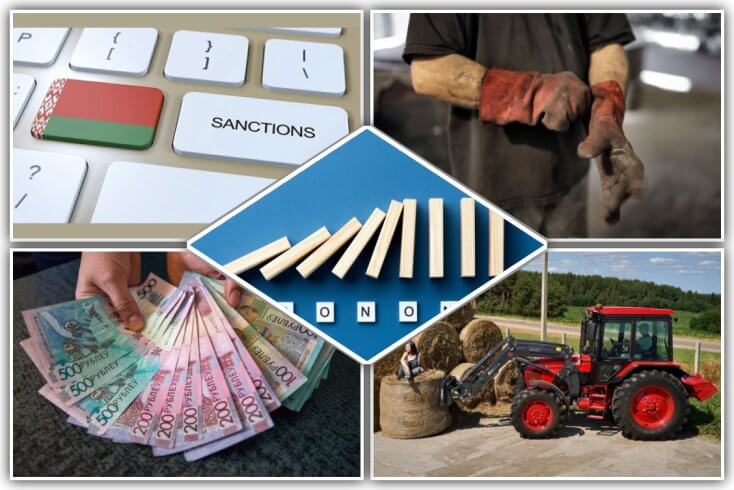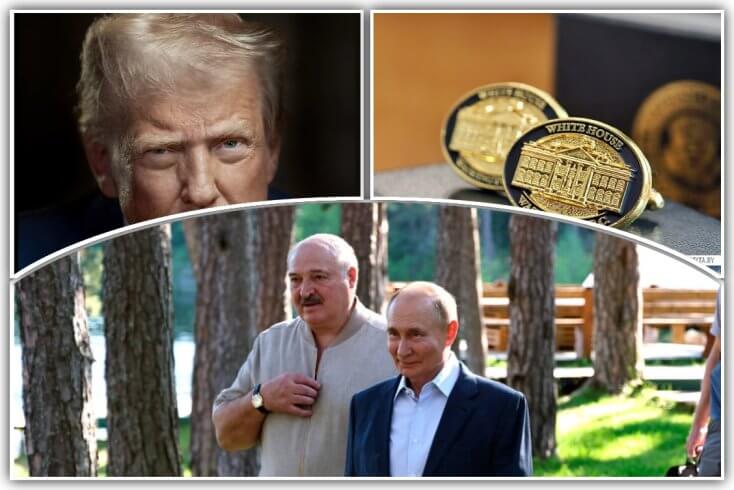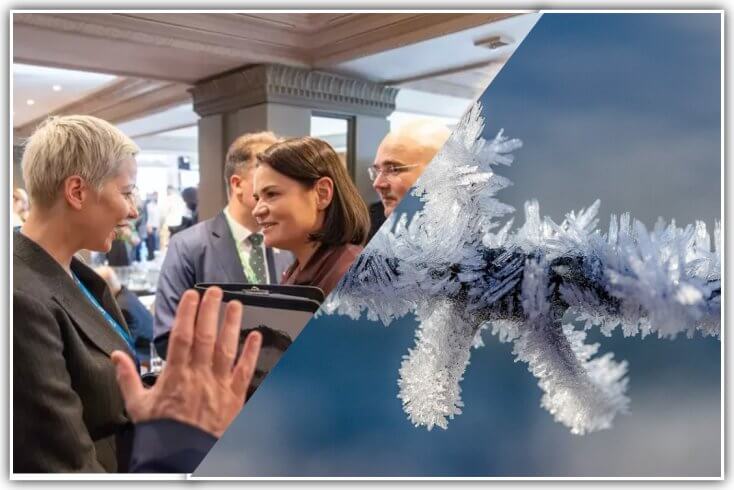Alaksandar Łukašenka, a 69-year-old man with profoundly Soviet mentality, is persistently imposing his youth values on Belarusian society. He is driven not only by nostalgia for the USSR, but also by practical considerations.
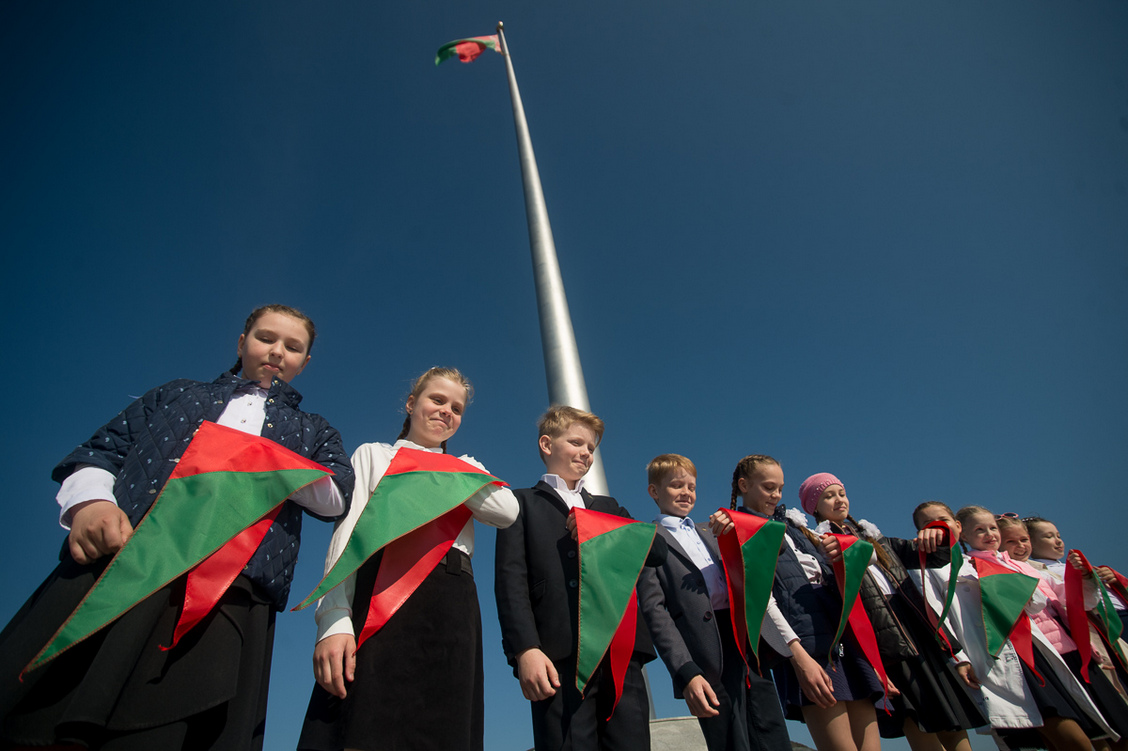
Space ambitions
Last week, Łukašenka and Russian President Vladimir Putin held another round of talks behind closed doors at the Kremlin. Neither of them would reveal what they discussed.
The two leaders met with Oleg Novitsky and Maryna Vasileŭskaja who spent two weeks at the International Space Station in late March and early April.
Łukašenka looked relaxed and radiant, as if he had flown into space himself, with a natural joy of a man whose mentality, spirit and conscience remained in the Soviet Union.
The Belarusian ruler needed that space mission only to highlight his own greatness. Otherwise it had no particular scientific or practical sense.
Belarus has no space program, no spaceship of its own and no even a parking place for a spaceship.
It had no money to pay for the ride either — Vasileŭskaja’s space journey was funded by Moscow.
In a similar PR campaign, Belarusian actress Julija Pierasild spent 12 days at the International Space Station in 2021, and when she returned, Łukašenka proudly said that was just the beginning.
Belarusian propaganda has rejoiced that “space is ours,” glorifying not so much the Biełavia flight attendant honored with the title of Hero of Belarus, but Łukašenka, who is portrayed as the father of national cosmonautics.
Łukašenka has used the space flight to promote himself, but without a big success.
In the XXI century space flights are no longer something exceptional. People who can afford it fly into space as tourists. Trips at someone else’s expense are not that frequent though.
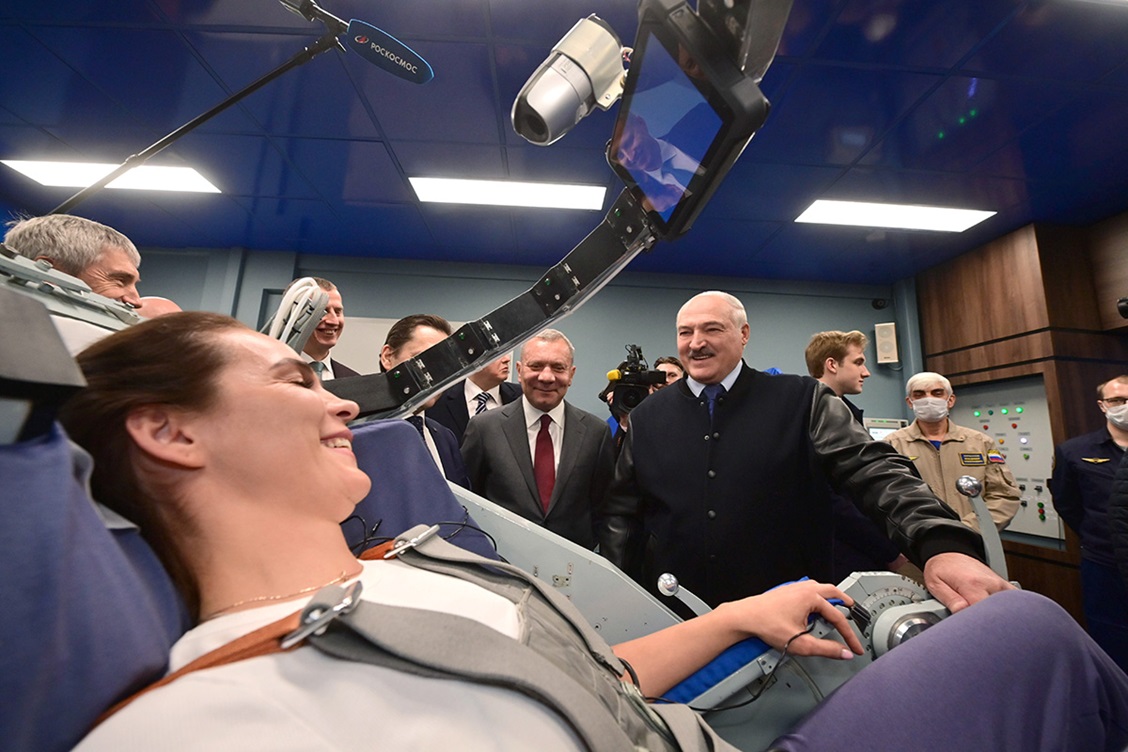
But the Belarusian ruler is enjoying himself as if he has stepped into a warm bath of his own illusions and feels like a pioneer of 60 years ago, a titan who raised Belarus to the level of “space powers” with his own version of Valentina Tereshkova.
The PR campaign is sure to continue. Vasileŭskaja’s will have a packed schedule with state media appearances, visits to schools and factories and speeches from all sorts of podiums.
Belarusians are generally not very enthusiastic about the space mission. The propagandists have kept this subject in limelight for many days, but there is not much happy feedback, no wave of enthusiasm on the streets or in the social media.
People do not share Łukašenka’s euphoria, and this is not the first time.
Belarusians ignore Soviet traditions
On April 20, the day before the anniversary of Lenin’s birth, Belarus will hold a traditional national subbotnik, a day of free labor.
Belarusians have always disliked subbotniks. They could usually buy their way out of centralized labor therapy by paying their one-day earnings into a government-run fund. Private companies made extensive use of this option, while public sector workers participate with little enthusiasm for doing someone else’s work on their legitimate day off.
Subbotnik is Łukašenka’s personal fetish, a throwback to the days of Soviet youth construction teams and songs around the campfire. He and his cronies participate in subbotniks, planting trees or doing other manual work.
On this day, he is pictured on television screens with a feeling of deep satisfaction on his face.
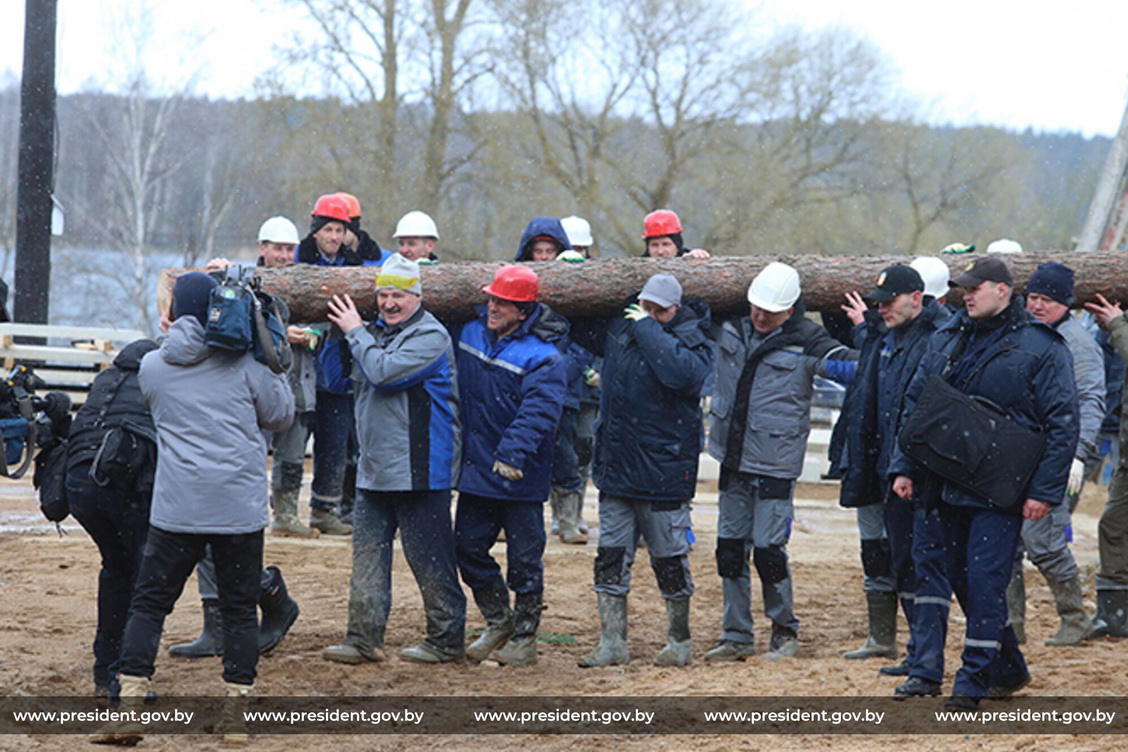
Throughout his reign, Łukašenka has introduced elements of Soviet rudimentary paraphernalia into the everyday lives of Belarusians.
In the countryside, he clings to slightly redesigned collective farms, despite inefficiency and mismanagement.
In the city, he holds on to gigantic state enterprises, although many of them are struggling to make ends meet, often at the expense of the government.
State symbols abound with Soviet elements, and Soviet-style pioneers and uniforms have been reintroduced at schools.
Trade unions are similar to Soviet government-organized organizations whose activity was limited to the distribution of vouchers for health resorts.
Many official holidays duplicate Soviet ones and are celebrated in the same style.
Officials, especially women with famous comb-overs, seem to have stepped straight out of the 1970s into the present.
The older Łukašenka gets, the more USSR relics he reintroduces in Belarus. In 2019, he openly called himself a “hardened Soviet man.” After the 2020 election, that hardening and sovietization have only grown stronger.
Political reprisals, the stigmatization of dissidents and censorship in Belarus are chillingly reminiscent of Soviet totalitarian past.
Łukašenka is satisfied: three and a half years after the mass street protests, the country has been purged of dissent. In a short time, Belarus transitioned from Brezhnev’s soft version of the USSR to Stalin’s ruthless state.
However, Łukašenka’s retro style is not massively and fervently supported by Belarusians.
Since it is impossible to conduct proper surveys in the country, one can only assume that Belarusians at best treat the Soviet relics in the same way as Soviet street names or Lenin monuments. They just ignore them.
Not just nostalgia
Belarus is rolling back to the darkest days of the Soviet Union, but it would be wrong to reduce everything to Łukašenka’s nostalgia. Obviously, his motives are quite practical.
He is obsessed with power. He has made all sorts of geopolitical twists and turns to hold on to it, including cozying up to the West in the periods of tension with Russia.
Minsk called engagement with the West a “multi-vector foreign policy,” although in reality it was a balancing act between the centers of global power.
Political jockeying is a complicated and, to some extent, opportunistic process. That is why Belarus under Łukašenka has not devised a cohesive ideology.
In mid-March, MP Vadzim Hihin suggested that a state ideology should be discussed at the All-Belarusian People’s Assembly coming up later this month.
Łukašenka said he liked the idea, but added, “We shouldn’t rush things.”
The Belarusian regime’s key ideology is self-preservation, but the government is ashamed to put it down on paper.
Who knows what will happen tomorrow, but today Łukašenka clearly sticks to Soviet practices. Not because Belarusians are nostalgic for the USSR, but because Soviet slogans help him mask his obsession with power.
Łukašenka is expecting Belarus to rally round the leader against the West and the opposition, which he accuses of professing false democratic values with the only purpose to put the country in turmoil.
With populism exhausted, only way is to tighten screws
The February parliamentary and local elections showcased new standards, largely similar to those of the USSR, such as labeling opponents as enemies, the lack of competition and total government control.
In 2022, Łukašenka talked about abolishing direct elections, suggesting that the president should be picked by the All-Belarusian People’s Assembly instead.
Presidential elections unsettle the nation, he said, citing China as an example of how to deal with it. Xi Jinping, elected by a small group, “has more power than me and Putin put together,” he argued.
He no longer raises this issue, but it does not mean it has been dropped.
The All-Belarusian People’s Assembly is modelled after Soviet Communist Party congresses. Delegates always vote as they are told to. In the last three years, the government has made it c
